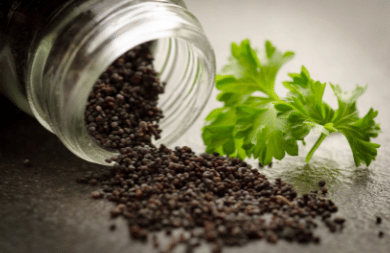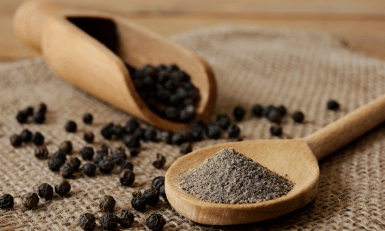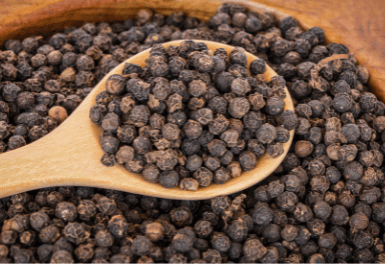
Beyond using it as a spice in foods, there are many health benefits of alligator pepper on human beings that will surprise you.
Alligator pepper can be beneficial in any of these ways:
10-year-old Lawrence had to endure the throat-sore discomfort he was feeling from the scalding of a hot cup of tea and the few bruises he sustained from playing football with other children on the field.
To him, his father’s remedy of alligator pepper and bitter Kola was something he wouldn’t try right away as the combination always had him spitting. He wouldn’t add that displeasure to his present discomfort.
Lawrence’s fear is assailed when he remembers that he may be required to take his occasional lead vocals during music class.
Inasmuch as he anticipated Fridays for this, he feared he wouldn’t be able to live up to his reputation as barely two days to the class, he still croaked like a frog.
Alas, he would have to try his father’s concoction; his ultimate remedy for almost everything, from a slight fever to a sore throat. It was either that or embarrassment from his class bullies.

The alligator pepper plant can grow up to five feet tall and is easily distinguished by its thin, lance-like leaves that produce trumpet-shaped, purple flowers.
As the flower blooms, it begins to develop into five to seven-centimeter-long, greyish-brown, dried pods that contain small brownish seeds with sharp peppery, bitter, and aromatic flavour.
Alligator pepper is one of such plants whose chemical properties have been found to play a number of roles that are of nutritional, medicinal, and therapeutic benefits to the human body.
Studies have found the extracts of its seeds to contain significant amounts of secondary metabolites and phytonutrients amongst which are tannins, phenolic, flavonoids, and alkaloid compounds that have been used as antidotes against several diseases.
The peculiarity of alligator pepper is seen in its skin which has close similarity with the back of an alligator, hence the origin of its name. It has a distinct reddish color when fresh and turns brown when dry.

The phytonutrients in alligator pepper seeds are excellent anti-oxidants that offer protection against viruses, allergens, tumors, and opportunistic bacteria in the body.
They also scavenge and mop up free radicals from the bloodstream.
Recent studies have proven that alligator pepper possesses a broad spectrum activity against microorganisms thereby inhibiting the growth of certain bacteria, fungi, and viruses like Staphylococcus aureus, Salmonella typhi, klebsiella spp etc.
Herbal concoctions made from crushed seeds of alligator pepper have been effectively employed in folk medicine for treating wounds.
Alligator pepper also contains Tannin in copious amounts which is highly effective for treating burns, healing wounds, and soothing inflamed mucous membranes.
Aqueous extracts of alligator pepper are incorporated into hot balms to alleviate rheumatoid and arthritic pains.
Extracts of alligator pepper seeds can be used for tackling intestinal problems like diarrhea, stomach pain, and ascariasis caused by the excessive population of intestinal worms. It is also recommended for constipation because it aids easy digestion and prevents stomach bloating.
Anti-inflammatory Properties:
The seeds protect the body against inflammation. This is due to its constituent of gingerol which inhibits the synthesis of leukotriene and prostaglandins (the key mediators of the inflammatory process).
With the peppery pungent taste of these tiny seeds, alligator pepper can keep the body alert hence serving as a stimulant.
Also, research reveals that alligator pepper stimulates sexual desires thereby making it a natural aphrodisiac.
Measles, Chickenpox, Smallpox, and Cutaneous tinea infections can be treated with herbal concoctions prepared from Aframomum melegueta, an element found in alligator pepper.
Herbal medicines prepared from the leaves are used to prevent and treat malaria. When chewed with bitter kola, it offers fast relief from sore throat.
READ ALSO: Malaria Signs and Drugs in Nigeria
Alligator pepper helps patients with diabetes maintain their blood glucose, thus protecting them from complications of the disease such as retinopathy (loss of vision), nephropathy (deterioration of kidney function), and neuropathy (weakness).
The grounded seeds of alligator pepper can be substituted with black pepper or grains of paradise to spice up dishes like pepper soups, stews, and other assorted meals.
Alligator pepper is a good source of various minerals including calcium, magnesium, and zinc.
Both the leaves and seeds of alligator pepper are used in the brewery industry for strengthening and flavoring beverages ranging from gins, beer, and to wine.
Kolanuts and alligator pepper are served in events such as traditional marriages/meetings, burial rites, and baby naming ceremonies, and have been a part of the Nigerian culture from time immemorial.
Although there are no recorded side effects of the alligator pepper, however, pregnant and lactating mothers are advised against consuming it. Following the report of a 2009 experiment by Inegbenebor et al., pregnant women in their first trimester are strongly advised to abstain from eating alligator pepper in order to avoid miscarriages.
Furthermore, lactating mothers should avoid taking alligator pepper in high quantities as it can reduce the secretion of prolactin which is responsible for stimulating milk production after childbirth.
NutritionJune 14, 2024
healthcareFebruary 27, 2025
healthcareAugust 20, 2025








